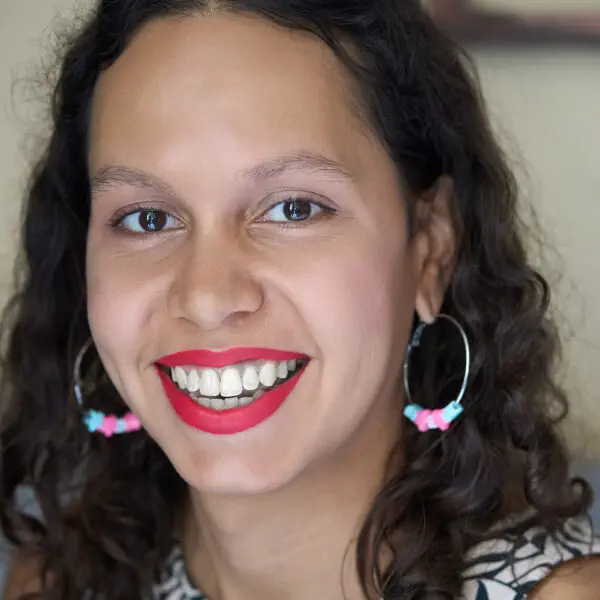
Bramma
More Than One TruthThe Story of Bramma Bremmer Belo Horizonte,…
“I Am Here” – The Story of Raul Nunes
with poetry from Escrito para…
My name is Raul Nunes. I’m 34 years old.
And I carry within me the weight of silence, the fire of resistance, and the delicate strength of a voice that refuses to vanish.
HIV entered my life when I was 26.
At the time, I was working in fashion creating beauty, embodying presence. I was becoming someone I admired. But life has a way of changing you mid-sentence:
A breakup.
A routine sti screen.
A result I didn’t expect.
Positive.
“Fui nomeado pelo vírus, mas renasci com um novo nome.”
(I was named by the virus, but I was reborn with a new name.)
I didn’t even know what HIV really was. I had seen others live with it yes but I hadn’t learned how to see myself in that narrative. Suddenly, I was inside the story, and I had no map.
The only person who didn’t run was my mother.
She stayed.
She held me.
She named me again not by my diagnosis, but by my worth.
“Minha mãe é meu lugar de cura, meu lar em carne viva.”
(My mother is my place of healing, my home in raw flesh.)
Everyone else disappeared friends, coworkers, even family.
I was fired from my job because of HIV.
No one said it directly, but the silence spoke loud enough.
And in that silence, I almost drowned.
But I didn’t.
I turned to the only thing that hadn’t left me my words.
I wrote a Facebook post one honest, burning piece of myself.
And it started something.
People listened.
Some, for the first time.
I had found a way to survive by telling the truth.
I became a communication assistant. Then a podcaster.
I co-founded Preto Positivo with my friend Emer Conatus the first Brazilian podcast centered on Black LGBTQIAPN+ people living with HIV.
Out of over a thousand projects, ours was selected by Spotify’s Sound Up program.
We brought voices from across the country together from the north, south, east, and west to say we exist. And we matter.
“Ser visível é resistir mesmo quando dói, mesmo quando cansa.”
(To be visible is to resist even when it hurts, even when it exhausts you.)
But visibility is not always a blessing.
People ghost me when they find out who I am not because of who I truly am, but because they see the public version of me.
The one who talks about HIV.
And they run.
I learned in therapy that their reaction says more about them than it does about me.
But it still hurts.
Worse still is the pain from within my own bloodline.
My brother and sister used words like aidético the cruel, violent slang for someone with AIDS.
They said I’d never be anything.
That I was nobody.
I haven’t spoken to them in eight years.
“Eles me chamaram de doença, então escrevi meu corpo em poema.”
(They called me a disease, so I wrote my body into a poem.)
But I became someone.
Not famous.
Not powerful.
Just present.
Just here.
Today, I hold space for others.
I walk beside those newly diagnosed.
I don’t preach.
I don’t offer platitudes.
I do what my mother did for me: I stay. I listen. I hold.
A few weeks ago, one of my closest friends found out he was HIV-positive.
When he told me, I threw up. My body remembered the fear.
But then I remembered what saved me.
I took him in my arms, held him for half an hour without saying a word.
And when I finally spoke, I said the same words my mother whispered to me when my world collapsed
“Eu tô aqui. A gente vai cuidar disso.”
(I’m here. We’re going to take care of this.)
That’s what I do. I give my hand.
Because sometimes, that’s the only medicine we have.
I don’t seek the spotlight.
The internet is not where my strength lives.
My strength is in the quiet rooms. The hospital corridors.
The tiny towns like Nova Lima, where I was born where stigma still stalks the streets.
That’s where I try to build something better.
I use my poetry as a bridge.
As resistance.
My book Escrito para… was born not to explain, but to embrace.
Each poem is a love letter to myself, to those who feel unseen, and to those who believe that HIV means the end.
“Escrevo como quem segura uma mão na escuridão pra dizer: você não está só.”
(I write like someone reaching out in the dark to say: you are not alone.)
And when I think of Cazuza who died of AIDS but lived like fire I remind myself that we are not victims unless we choose to be.
I refuse that role.
Like Cazuza, I choose art.
I choose to burn bright, even when it costs me everything.
“Minha vingança é estar bem. Minha resposta é viver bonito.”
(My revenge is to be well. My answer is to live beautifully.)
This is not just my story.
This is a story of survival, of Blackness, of queerness, of motherhood, of poetry, of resistance.
This is me Raul.
And I am still here.
Share this story on: